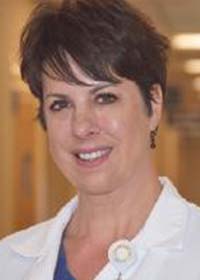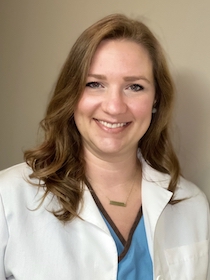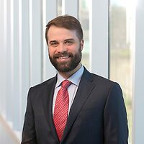Heart and Valve Disease Treatment
The structural heart and valve program at Brookwood Baptist Medical Center offers a personalized and innovative approach to treating heart valve disease and structural heart conditions.
Innovative Heart Care Solutions for Central Alabama
A structural heart and valve disease diagnosis can be scary. But the innovative heart and valve disease treatment options at Brookwood Baptist Medical Center may mean a healthier heart is within reach. We are here to help provide a better quality of life and reduce symptoms to make your heart muscle work at a healthy pace.
The structural heart and valve program treats a range of conditions affecting the aortic, mitral and tricuspid valves, as well as the structure of the heart.
Structural heart disease covers many heart conditions that aren't generally related to coronary disease and refers to valvular heart disease and any defect within the heart. Many defects are repaired percutaneously via a catheter instead of through open-heart surgery.
What Causes Heart Valve Problems?
Congenital heart valve disease occurs as the heart is forming. The condition may occur alone or with other congenital heart defects, such as holes in the heart.
Heart conditions and other disorders related to age, rheumatic fever or infections can cause acquired heart valve disease as it changes the shape or flexibility of normal heart valves.
These conditions include:
- Advanced high blood pressure and heart failure that can enlarge the heart or main arteries
- Atherosclerosis in the aorta, which is plaque build-up inside the arteries
- Heart attack or heart injury complications that damages and scars the heart tissue
What Are the Symptoms of a Heart Valve Problem?
Although having a heart murmur is a significant sign of heart valve disease, many people with this condition do not have heart valve disease or any heart problems.
Heart valve disease usually develops slowly and often worsens over time. Many people with heart valve disease don't have symptoms until they're middle-aged or older.
The following symptoms are common among people with heart failure related to heart valve disease:
- Unusual fatigue
- Shortness of breath, especially when you exert yourself or when you're lying down
- Swelling in your ankles, feet, legs, abdomen and veins in the neck
Other signs and symptoms are:
- Chest pain that may happen only when you exert yourself
- Fluttering, racing or irregular heartbeat
- Dizziness or fainting
Get to know your heart with our free newsletter and heart health quiz in our cardiovascular resources here.
What Is the Survival Rate for Heart Valve Replacement?
There is no known cure yet for heart valve disease. However, lifestyle changes and certain medicines can help successfully relieve many symptoms and may delay complications for many years.
Your doctor may eventually recommend a heart valve repair or replacement if noninvasive treatments fail or even if your heart valve disease isn't causing symptoms. Repairing or replacing a faulty heart valve can prevent lasting damage to your heart and sudden death.
The risk of infective endocarditis, also called bacterial endocarditis, is lower with heart valve repair. Infective endocarditis occurs when bacteria enter the bloodstream and settle in the heart lining, a heart valve or a blood vessel. Repairing valves preserves the strength and function of the heart muscle, which is why, when possible, heart valve repair is preferable over heart valve replacement. People who have valve repair don't need to take blood-thinning medicines for the rest of their lives.
However, heart valve repair surgery cannot be performed on all valves and is more complex than valve replacement. Mitral valves often can be repaired, but aortic and pulmonary valves often have to be replaced.
Study shows that survival rates vary depending on which valve is involved. After aortic valve replacement surgery, long-term survival was 84%, ten years after the surgery, 68.5% after mitral and 80.9% after both aortic and mitral valve replacement.
Why Choose Brookwood Baptist Medical Center's Cardiovascular Services
Our program utilizes the "Heart Team" approach, bringing together a network of experienced physicians from cardiology, endovascular surgery, cardiothoracic surgery, interventional radiology and advanced cardiovascular imaging. The Heart Team approach ensures patients receive an individualized care plan with many ways to treat heart disease – in the clinic, the catheterization lab or the operating room.
Coordinators

Sonia Scalf
Cardiovascular Manager: Non-Invasive/EKG and Structural Heart/Valve Clinic

Brooke Thompson
Structural Heart & Valve Coordinator
Our experienced valve coordinators are compassionate and patient-focused individuals dedicated to supporting patients throughout their journey. If there are any questions about our program, please don't hesitate to call 205-877-2901 for assistance.
The Team
The "Heart Team" approach means team members meet with patients during clinic visits to develop a patient-centered, comprehensive plan, including the latest treatment options.
Experienced heart and vascular doctors at Brookwood and Princeton work together with patients on a care plan. Depending on the hospital, the care team may include cardiothoracic surgeons, interventional cardiologists, and cardiac imaging radiologists. Some locations within the Baptist Health system offer nursing care before, during and after the procedure as well as ongoing education.
The multidisciplinary physician team at Brookwood Baptist Medical Center includes:


Insurances Offered at Brookwood Baptist Medical Center
We have a dedicated staff available to address your questions and help you make financial arrangements to get the care you need for your condition. We can help you make payment arrangements that fit your budget through our estimated out-of-pocket prices for procedures.
Brookwood Baptist Health accepts various insurance plans and can help you navigate payment options that fit your budget. For questions about your coverage, please contact your insurance provider directly or click on this link for your billing and insurance questions. You may also call our billing specialists at 205-877-1926 if you have questions about your bill after leaving the hospital.
Find a Cardiologist in Central Alabama
If you experience symptoms of any condition or are at risk of developing heart valve problems, Brookwood Baptist Medical Center is here for you. To find a cardiologist, please fill out this form or call 833-769-4858. You may also check out our directory online to find the location near you.
If it's an emergency, seek medical attention immediately or call 911. Please don't delay care.
